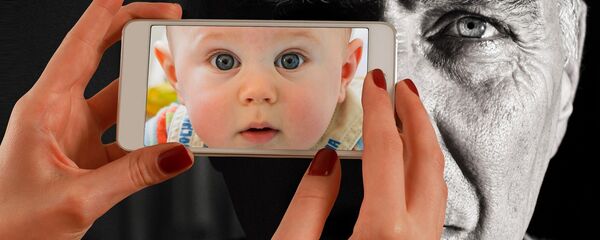The researchers also hope to learn if there is a difference in the amount of sleep necessary for people of different ages and in different social settings.
Radio Sputnik discussed the new research in details with the head of the study, Dr Adrian Owen, an expert in cognitive imaging and neuroscience at Canada Excellence Research Chairs.
“We still know very little about how our decision making, memories and our problem solving activities are affected by lack of sleep,” Owen said.
He further said that whatever we know so far has been based on relatively small, laboratory based studies and scientists have studied things like sleep deprivation and what happens when a person is kept awake for 18 hours or so.
Talking about the recent Western Ontario sleep study, Owen explained that the reason for having so many volunteers is because there is just so much variability with regard to sleep and its effects on different people.
“Many people actually take pride in operating with little sleep. There are many famous examples of presidents and prime ministers who claim to have run countries on 4 hours of sleep. The question is: Can you really do that?” Owen said.
British Prime Minister Theresa May was also reported to have admitted to sleeping less than she would like to.
“Fortunately I'm someone who does sleep pretty well, although I don't get as many hours as I might like. You're probably talking about five or six hours. There's a lot of work to do,” May said in 2014 during an interview with Kirsty Young on Desert Island Discs.
Indian Prime Minister Modi, an avid yogi, sleeps only 3.5 hours per night. “For many years I’ve hardly slept 3.5 hours. But it is a very sound sleep. I go to bed and within 30 seconds I fall asleep," Modi said in an interview in 2011.
Vladimir Putin has also admitted that he sleeps very little. During a recent talk with his Belarusian counterpart, Putin said that he sleeps only four to five hours per night.
The recent study aims to reveal how sleep deprivation can affect human cognition and general well-being.
By getting many thousands of people to participate in this research, the study can not only look at variability across the population but also answer questions like does the age matter, does gender or the type of medication people are on matter.
There is also a quiz which people will have to complete in order to access their brain functionality before and after they have slept.
Talking about the worst sleep deprivation impacts, the head of the study said, “Death is the worst impact. If you continually stay awake, typically you will eventually fall asleep after some days.” However, if there is no sleep at all the person can die because of it.
However, these experiments have been performed on rats and not on humans, so the rats died if they were completely sleep deprived.
Talking about what sleep actually is, the scientist said that, “We know that every species sleeps so it’s absolutely fundamental, like eating or drinking water."
“But we still don’t know what it’s for. Many theorists say that it is necessary for consolidating memories that we make during the day, but that is still not very clear so that is one of the big questions that we want to answer with this study,” Owen concluded.




